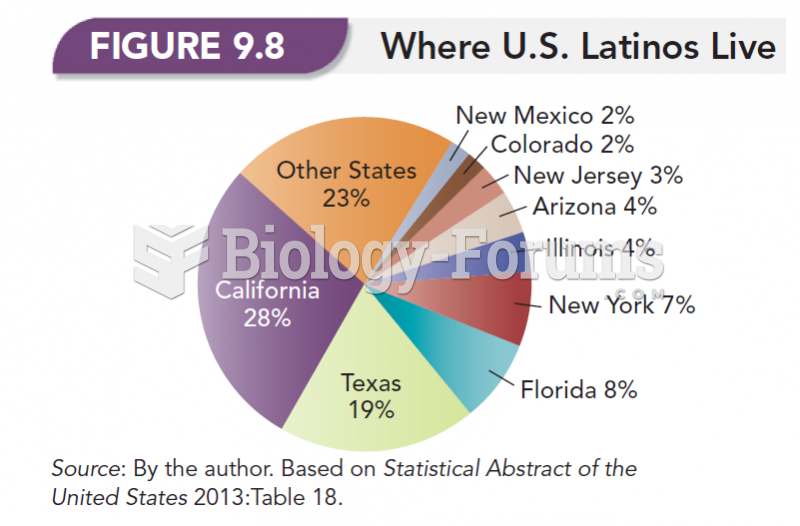This topic contains a solution. Click here to go to the answer
|
|
|
Did you know?
Patients who have been on total parenteral nutrition for more than a few days may need to have foods gradually reintroduced to give the digestive tract time to start working again.
Did you know?
Patients who cannot swallow may receive nutrition via a parenteral route—usually, a catheter is inserted through the chest into a large vein going into the heart.
Did you know?
Your heart beats over 36 million times a year.
Did you know?
Today, nearly 8 out of 10 pregnant women living with HIV (about 1.1 million), receive antiretrovirals.
Did you know?
Allergies play a major part in the health of children. The most prevalent childhood allergies are milk, egg, soy, wheat, peanuts, tree nuts, and seafood.
 Chimpanzees live in complex kin groups in which lifelong bonds and individual personalities play key
Chimpanzees live in complex kin groups in which lifelong bonds and individual personalities play key
 If sociologists were to study land diving on Pentecost Island in Vanuatu, they could use a variety ...
If sociologists were to study land diving on Pentecost Island in Vanuatu, they could use a variety ...




